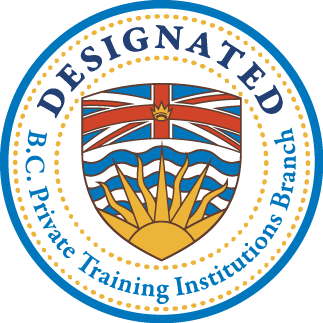Do you have the right personality for College?
Take Assessment!
3 Important Skills for Community Service Workers Working in Vocational Rehabilitation Settings Educational Settings
Posted by Jason TavaresAre you passionate about making a positive difference in people’s lives? A career as a Community Service Worker (CSW) in vocational rehabilitation could be the perfect path for you. CSWs play a crucial role in helping individuals with physical and mental disabilities overcome challenges and achieve independence in both employment and daily living.
At Academy of Learning Career College BC (AOLCC BC), our 34-week Community Service Worker Diploma Program is designed to equip students with the skills and knowledge necessary to thrive in this vital field.
Understanding Vocational Rehabilitation
Vocational rehabilitation refers to the process of helping individuals with disabilities or health conditions to achieve and maintain employment. Whether a person has experienced an injury, illness, or long-term disability, vocational rehabilitation aims to restore their ability to work through personalized support, training, and therapy.
Community Service Workers and support workers often collaborate with rehabilitation specialists, employers, and educational institutions to assist clients in overcoming obstacles and adapting to new work environments.
Community Service Workers are advocates, guides, and facilitators in this setting. They help clients set realistic goals, develop skills, and access resources that lead to meaningful employment. From arranging vocational training to offering emotional support, Community Service Workers ensure individuals are empowered to succeed.

What Is a Community Service Worker?
What Is a Community Service Worker? A Community Service Worker is a key point of contact for individuals who require ongoing assistance to navigate personal challenges, whether due to physical disabilities, mental health issues, or other restrictions.
What does a service worker do? Community service worker responsibilities include providing critical support, connecting individuals to necessary resources, and offering guidance to ensure clients receive the care they need. This role is especially significant in vocational rehabilitation settings, where the focus is on helping individuals gain the skills and confidence to re-enter the workforce or pursue further education.

3 Important Vocational Rehabilitation Skills for Community Service Workers
At AOLCC BC, we understand the unique demands of community service work. Our Community Service Worker Diploma Program is specifically designed to prepare students for roles where they can make a real difference. What are the skills of community workers? Advocacy, mental health support, and communication are the key skills that we provide in our program.
1. Client Advocacy and Casework
One of the most important skills a Community Service Worker can develop is advocating effectively for their clients. In vocational rehabilitation settings, this often means helping individuals navigate government assistance programs, access training, and secure employment opportunities. Through our comprehensive curriculum, you’ll learn to assess clients’ needs, develop personalized care plans, and connect them to the necessary community resources.
2. Understanding Mental Health and Addictions
Many individuals seeking vocational rehabilitation face not only physical challenges but also mental health and addiction issues. As a Community Service Worker, having a deep understanding of these factors is critical in providing comprehensive care. At AOLCC BC, our curriculum covers mental health, addictions, and how these issues intersect with vocational success. You’ll develop the ability to recognize signs of mental health conditions, offer support, and refer clients to appropriate healthcare professionals when needed.
3. Interpersonal Skills
Interpersonal skills matter for community service workers. Why are interpersonal skills important to a community service worker? In any community service role, relating with others effectively is key. You’ll need to communicate clearly with clients, colleagues, and other professionals in the rehabilitation process. Our Community Service Worker Diploma Program places a strong emphasis on developing both verbal and written communication skills.
Through our program, you’ll explore the introduction to vocational rehabilitation and participate in practical exercises, hands-on training, and workshops that build your counseling and communication skills. You’ll also gain experience in real-world settings through our 75-hour preceptorship, which allows you to practice what you’ve learned in a professional environment. Prepare to succeed in your career. We’ll support you every step of the way.
Are you ready to start our Community Service Worker course?
Contact AOLCC BC for more information!
Frequently Asked Questions
Question: What are the skills of community workers?
Answer: Advocacy, mental health support, and communication are the key skills we provide in our program.
Question: Why are interpersonal skills important to a community service worker? Answer: In any community service role, communication is key. You’ll need to communicate clearly with clients, colleagues, and other professionals in the rehabilitation process.

